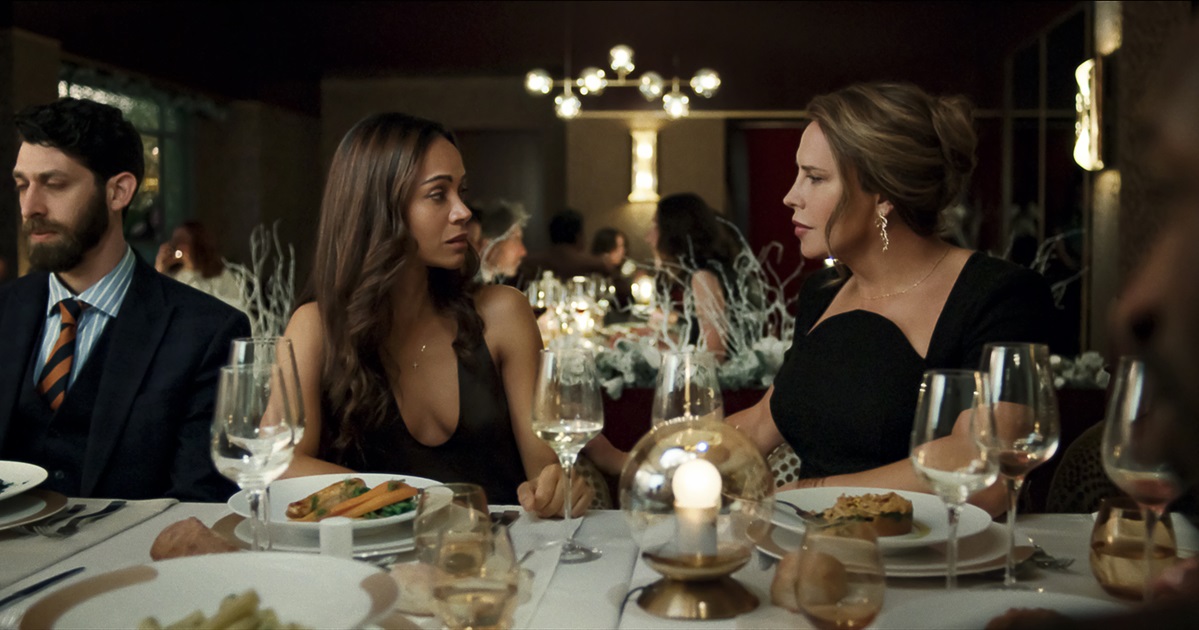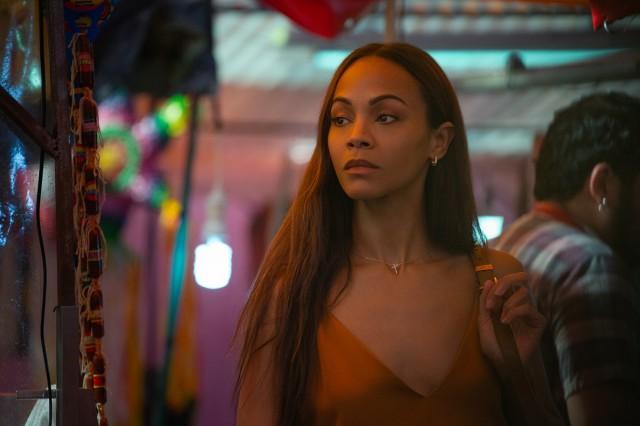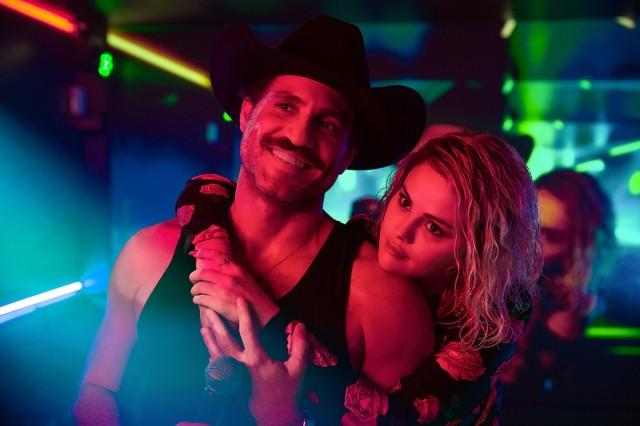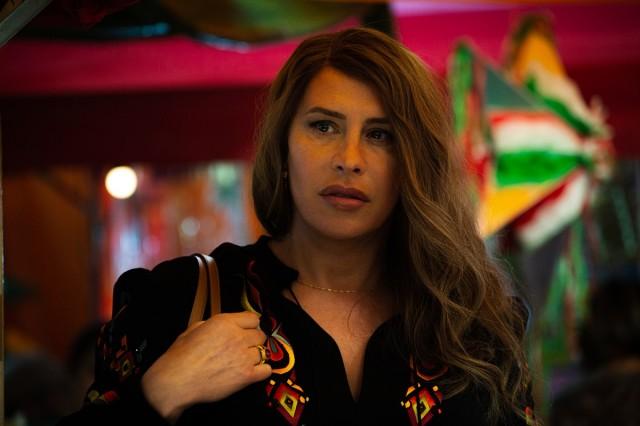Zoe Saldana, Selena Gomez, Edgar Ramirez, Karla Sofia Gascon talk of their film 'Emilia Perez'

The French musical crime comedy "Emilia Perez" is not just a story about an underappreciated lawyer in Mexico. It is more about powerful women who struggle to prove themselves in a man's world.
Bagging the Jury Prize at the 77th Cannes Film Festival, the film competed for the Palme d'Or in the main competition. Its female ensemble, composed of Zoe Saldana (Rita Mora Castro), Karla Sofia Gascon (Emilia Perez/Juan "Matias" Del Monte), Selena Gomez (Jessi Del Monte) and Adriana Paz (Epifania Flores), all won the Best Actress award at the said festival. This year, it is the French entry for Best International Feature Film at the 97th Academy Awards.
Written and directed by Jacques Audiard and loosely adapted from Boris Razon's 2018 novel, "Ecoute," the film also stars Edgar Ramirez (Gustavo Brun), and Mark Ivanir (Dr. Wasserman).
We were able to interview in person Saldana, Gascon, Gomez, and Ramirez and they talked about their experiences working on the musical film, the challenges, their bonding, and working with French director Audiard.
Zoe Saldana (Rita Mora Castro)

Congratulations on your amazing performance. I rediscovered your singing, dancing, and very powerful acting. Talk about what you got from doing this role.
The opportunity to reconnect with such important elemental parts of me. I started dancing when I was a little girl and ballet, and all kinds of interpretative performative dance became such a medicine for me in times of absolute great need. With all the techniques and skills that I obtained for those 10 or 11 years that I danced; I was able to pursue a career that allowed me to play roles that were very physical. I'm grateful, but in the last few years, I just had a desire to connect again. I never in a million years would I ever think that it would be in the form of a Jacques Audiard movie because he's the dream. He's one of my top three filmmakers of all time. I never even thought that I could ever achieve that.
Talk about the dinner table scene where you jumped on the table, sang, acted, and danced. How difficult and challenging was it?
It required a lot of rehearsals, a lot of faith and trust, and the team that I was surrounding myself with. I did not want to let them down, but I felt like that's the ballet dancer in me where you're this apt pupil and you have to get everything right. But at the end of the day, being in Rita's skin, in her feelings, and in her thoughts about what she was going through is what I needed to do and the space that I needed to be in for all of this to happen.
Congratulations on your Best Actress award in Cannes. What's the significance of this award for you?
It's everything. We work hard and as artists, we always like to say that we don't need acknowledgement, and we don't need the accolade. But an artist with an inability to share his art is a dead artist. What's your purpose if you can't share what you feel and what you do? So, for that to be acknowledged, I get emotional. It's a dream.
How much do you relate to your character and why is representation very important for you?
The representation that I drew from Rita is the women in the workforce who give 120% and they always have to work twice as hard and be the first ones to arrive at work and the last ones to leave for them to prove that they're worthy to be where they're at. Throughout history, women have written books about it, and I'm surrounded by women who always take on this extra responsibility to be perfect. And Rita was underappreciated, overworked, and completely burnt out, and yet she was desperate for change. She just wanted her own version of success so badly that Emilia made her an offer that she just couldn't refuse.
You are the first and to date the only actress in history to star in four films that made two billion dollars at the box office. You've been honored on the Hollywood Walk of Fame. So having said all of that, you call yourself a sci-fi geek who happens to dress nicely. So how did the sci-fi geek end up in "Emilia Perez"?
I'm an artist at heart, and "Emilia Perez" gave me an opportunity to reconnect with parts of me that I had forever sort of said goodbye to, and yet found myself in the last years of my life yearning to have just an ounce of what that felt like.
When you're young, you're fearless, and little did you know that when your folks are keeping you busy and they're putting you in dance, and in art, and in tennis, if you're lucky enough to have families that can afford that and do that, most of the times you're able to use these skills for something else in your life. And it catapulted me into a career where there was an abundance in roles when it came to active women in action and science fiction.
And I do have an affinity for that, but I am a native New Yorker, so I have jazz hands in my DNA. And I'm a dancer at heart, I will forever be a dancer. Playing a character like Rita who lives a lot on the inside. This is a woman who does not have the courage or the strength to speak up and be her own advocate. She can be an advocate for others, but she can't speak for herself. That was a very familiar woman in my eyes, a woman who was desperate for change and visibility at all costs.
And I just wanted to know what it was like to be in her skin. The breaths in the movie are those breaks of song and dance where you're able then to see how they truly feel and what they truly think. And I just thought that that jump from reality and surrealism was what made this movie very special to me.
Selena Gomez and Edgar Ramirez (Jessi Del Monte and Gustavo Brun)

Congratulations to both of you for this movie and also to you Selena for winning the Best Actress award in Cannes with your female co-stars. For both of you, how did you get into the skin of your characters?
Selena: For me, I found Jessi to be very complex. She's fierce and not very likable in moments. And I thought that would be so interesting to balance the love she has for her children and her husband. Ultimately, it's something that I feel like I just resonated with her. I don't dress the way she dresses. I don't talk the way she talks. It was a good challenge for me as an actor.
Edgar: I've said this before, I discovered my character in his love and his relationship with Jessi, with Selena's character. In her eyes, I discovered this character because it's defined by love and violence as well. So as Selena was saying earlier, the characters in this film are filled with contradiction, and what defines us as human beings is contradiction. We have contradicting natures. That's what defines the human element on this planet. Things don't go by instinct, or they go by contradiction. We have an instinct, but we also have a mind. We have rationality, and we have an animalistic nature coexisting at the same time. Our characters are filled with that. All the characters in the movie have it. They want to try to do their best. They want to make amends. At the same time, some other stronger forces pull us in different directions. That's what makes the movie so relatable because we all inhabit those contradictions.
How was it working with the director? Is this your first time working with him?
Selena: Yes. I hope it's not the last, but I will take whatever I can get. Jacques Audiard is a genius in his own right. I was so honored that he trusted me with this character. So, it was a dream to work with him.
Edgar: Same thing. I've always wanted to work with Jacques. I have a very close relationship with French cinema. My career was defined by a French movie. There was a movie that Olivier Assayas directed called "Carlos." It was the movie that allowed me to have these beautiful opportunities in international cinema. So, I feel very connected. I have a lot of respect for French cinema. And Jacques Audiard is one of its most important directors. We met each other socially some years ago and always wanted to find an opportunity to work together. So, I'm very happy that it finally happened.
Selena Gomez (Jessi Del Monte)
In your wildest dreams, when you attended a Disney open call, did you think your life and career would ultimately lead you to Jessi and "Emilia Perez"?
I don't think I ever thought that I would be here, but I'm genuinely so grateful because this is a role I've been waiting for, for a very long time. And it was really incredible to be able to sink my teeth into something, and it honestly feels like it's just the beginning.
So, there's a line in the film that says, to listen is to accept. During the gunfight, as Jessi is listening to Emilia confess that she is Manitas by recalling memories, do you think Jessi learned in that moment to accept Manitas and love her as Emilia?
I feel like there was this moment that she didn't have a chance to really understand, but I think the love was immediately there. And I think that's why it was so intense at the moment. By the way, that was the first scene that Jacques had me shoot, was the end of the movie. Very, very crazy and grateful for that. But I think that sense of urgency was her wanting to know more.
When you think someone is gone and all of a sudden, it's this reincarnation of someone that was everything to you, I think she'd be blind to not know that it was pulling at her, but it was so quick at the same time.
Edgar Ramirez (Gustavo Brun)
Your character is inserted into a film that is like girl power on steroids. And you play a role that is both a catalyst and an antagonist. How hard was it for you to make that kind of impact in an environment driven by an alpha female energy?
I love alpha female energy. To start with. I mean, at the beginning, it was a lucky strike that I had a mother who had alpha female energy. Then a sister. And then I made sure that I surrounded myself with alpha female energy. So, I feel very comfortable working with women. I love it. Actually, it's interesting that that is the question that is submitted, because the more you talk about this movie and the more you see it, the more things you discover.
And I love actresses. I remember when I gave to Kirsten Dunst, it was a privilege to give her the Palme d'Or in Cannes a few years ago. And I had to say something that Gilles Jacob said, who was the president of Cannes for many years, he said, "All you need to make a movie work is a woman and a gun."
And it's funny, right? Years later, we have all these strong, beautiful, vulnerable, badass women, and guns.
Karla, I want you to know that hatred is cowardice, and you know it. And hatred is full of illusions. Because it thinks it's strong, and it hides. It's not forward. And you are a strong, forward, courageous woman.
And very quickly, to answer the question, I mean, one could be just so lucky to have the privilege and the opportunity to support these amazing actresses playing these amazing characters.
This is a story, ultimately, about freedom. It's a story about freedom told through the portrait of these four women. All of them, each of them trying to break through the obstacles and the chains imposed upon them in different ways, all the way from denying the right to be their truest selves, to reclaiming their right to be happy. Their sexuality, their agency. Their right to choose who they want to be with. To choose what they want to be in life.
And that is something that we can all relate to. Because I think that ultimately, all we want to be, life, is free. And on the other hand, it's also a movie about hope. And that hope is also portrayed in these women, you know? I've said this before, there's something very beautiful about what Jacques did. Like a French man telling a story about Mexican women and Mexico in Spanish.
And the reality is that that is the ultimate exercise of compassion, is having a compassionate outlook towards reality and looking at it with real, fresh, innocent eyes. I mean, with utmost curiosity. And that is something that I commend Jacques for. It's not the first time that he has done it. Always, in my opinion, does it right because of his sensitivity and his true, true curiosity, without any preconceived ideas.
And that is something that I really admire and respect. And, of course, for me when I got the invitation to be in this movie, I mean, I said, like, just tell me when and where, and I'll be there. And, of course, discovering this character, who's this, you know, bad boy, but deeply, inevitably, desperately in love with Jessi. So, I discover this character in the eyes of Selena playing Jessi.
It was in her eyes and in the back and forth. And the energy that we bounce back and forth is where I discover this character. This movie is also about contradictions. And what makes us human is contradictions. The juxtaposition between violence and tenderness, freedom and chains, this movie is all about that. It's all about the juxtaposition of things that feel very contradictory.
As somebody told me, this movie feels like a perfect mariachi song. A mariachi song that always speaks about you. That no matter how old you are, no matter what moment in your life you listen to that song, and it's talking about you. And I think that is a beautiful analogy.
Karla Sofia Gascon (Emilia Perez/Juan "Manitas" Del Monte)

How was it performing two roles?
It has been an incredible challenge for me as an actress. It's a character that would be something very, very complicated for any actress to play. And for me, it hasn't been any less. It has been a journey as if I were Jules Verne on "Journey to the Center of the Earth" or a trip "Around the World in 80 Days." That's how I feel. It has been a discovery, a deepening, a journey to a masculine side, a journey to a feminine side. Filming one day as Manitas, the next day as Emilia. A trip, a complete rollercoaster.
How were you able to convince the director that you are the perfect person for the role?
Because there was no other option for that director. Only an actress as crazy as me could have interpreted it. In any case, what I did was what I have done many times in my life, which is to give the character what they saw that I could do it. So, I filmed myself putting hair on my face, combing my hair differently, dressing differently, and changing my voice. I like dubbing, so I do it very well. And from there they began to understand that there was a possibility that I could interpret it. Then I had the support and the help of a great and wonderful team of special effects, makeup, hairstyles, and hairdressing that helped in the whole creation of this character. But at the beginning, I convinced them. And with a filter of an Internet application that makes you look like a madwoman. They could understand that I could do it.
You are the first trans woman to win Best Actress at Cannes. How was that feeling of representation?
They didn't give me the award in Cannes for being neither trans nor the tallest nor the blondest. They gave it to me for my interpretation of the film. If that can help a minority, despised by the entire world society, to rise up and live in peace, love, and harmony with other people in society, I am very happy. But I think I represent a lot of people at this moment, very different from the Latin community to my fellow actors and all the people who want to be free and live in peace in this world.
I didn't sleep much last night. I got up at three a.m. and started watching the news, and an interview of mine on a media outlet that shall remain nameless. And what happens is, any time I see the news, I look at the comments. And it's always the same comments. The same comments of hatred regardless of the country, regardless of the situation. And keep hearing the same thing. It's just getting so tiring.
At the end of the day, all the applause and all the accolades, it's not just for the hair, the color of our hair, of our skin, or sexuality. It is done for the work that we do. And what we do and what we want to bring about is that we're all worth it. And that's the message that we're trying to give with this movie. That we are all the same.
—MGP, GMA Integrated News



